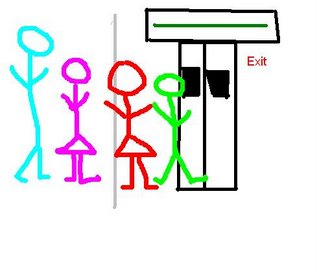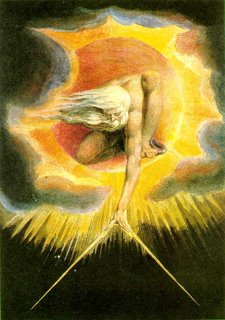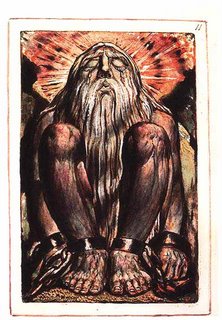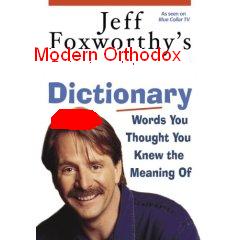This morning, Annie and I had an argument about this post, a rabbi’s answer to a gentleman asking about whether his parent’s opposition to intermarriage was racist, considering their lack of Jewish content. Aside from my views on whether Judaism is a race (see Judaism: Not a Race), I took issue with the rabbi’s answer. The following dialogue resulted:
Annie: He’s saying, Jewish content makes Jewish marriages
Harley: He did not say that. He said Jewish marriages make Jewish marriages and that if you marry a non-Jew, you are accepting something as part of yourself that is inherently alien
Annie: He did, and also that Jewish marriages are an important part of Jewish life. I agree. Just like marrying someone from a foreign country is inherently alien; although you are still an American, you have incorporated non-Americanism into your being
Harley: Jewish content means Jewish marriages, I do hold that view.
Annie: And to some extent Jewish marriages make Jewish content
Harley: But that does not imply that Jewish content necessitates two Jewish partners?
Annie: He isn't saying that, but he is saying that two Jewish partners create Jewish content
Harley: He's saying that Jewishness is inherent and that, regardless of practice or belief, you should marry another Jew
Annie: That is what the Jewish religion believes: that religion is inherent
Harley: Because there is something inherent about them that is true that is not true of other people? But then what about converts?
Annie: We assume that they were actually at Sinai
Harley: Judaism believes that Jews are separate? Then the nationality analogy holds no water. You are not inherently French. You were born in France. God did not make you French
Annie: No, but in terms of identity, you were born French, but you marry an American, so issues of America become part of you
Harley: That's a good point, that you deal with another person's identity when you marry, but he's not saying that. He's saying they are implicitly different because they are not Jewish, which implies that even if they embrace Judaism, so long as they do not convert and were not at Sinai, they are inherently other
Annie: But they are implicitly different. They didn't grow up Jewish and we waive that for converts
Harley: Yes, but what does that mean beyond observance? And culture
Annie: They didn't grow up with the culture, with the specifically Jewish values
Harley: He's saying that it does not matter if the person has NO Jewish content, they are still Jewish [which I agree with to the extent that anyone who self identifies is Jewish, but not that this accident of birth makes them more appropriate for marriage]. Given that, even a person with no positive Jewish content, who happens to be born of Jewish parents, is still inherently different from someone who grew up the exact same way, but with Christian parents (by birth) or atheist parents
Annie: I think so
Harley: That people are inherently Jewish? Even if they have no positive content? You believe we were all at Sinai together?
Annie: I don't think that people were born by accident into a Jewish family. You are assuming that people just "happen to be" born into Jewish families. but according to Jewish theology, the "chosen people" idea extends. You aren't just Jewish, you were born Jewish, which assumes a pre-birth selection
Harley: And for converts, they were born into the wrong family? A pre-birth selection by God? God looks at souls and says: you are Chosen; you will be born into a Jewish family?
Annie: Yeah. basically, and converts are retroactively selected. They opt-in
Harley: So Jews are superior to non-Jews? Or just different?
Annie: Just different. our whole religion is based on the idea of "separate." I am not saying that they were born better, but are you going to argue that if you were born Jewish that your life is different qualitatively than someone who isn't? Even if you have no Jewish content. That by being aware of the fact that you are Jewish, is a different situation than being Christian/Muslim/etc?
Harley: That's contextualizing yourself historically and has nothing to do with an inherent identity. The same could be said about being born American and not Malaysian
Annie: I am saying that both are true
Harley: You are not saying born better, but you are saying Chosen and you are saying different.
Annie: Because you are inherently Jewish, you have a different experience. If you are Jewish, but don't know it, for instance, you cannot measure whether or not the person has a different experience/identity because they don't know
Harley:: Like Madeleine Albright or George Allen? According to your argument, they are inherently Jewish, they are Chosen, but the danger in the argument is not necessarily that being separate or being Chosen affects your life experience (b/c the same could be true of being American, being Senegalese, being German), it's that in saying you are inherently different because you're Jewish buys into all essentialist arguments about identity and feeds into other arguments about difference: “Jews are inherently different”
Annie: Ok. I understand what you are saying, BUT I don't think that you can take it out of context. I think that you have to accept that we live within a world. so to separate "inherently different" from "different life experience based on that inherent difference" is meaningless. You can't measure inherent difference and I think that that is what the rabbi is trying to say. Not that b/c we are inherently different in a vacuum that marrying a non-Jew changes that, but that b/c we are already a separate nationality/religion; it does make a material change who you marry
Harley: It is something you have to consider when you marry, yes. Just like you have to consider all other sorts of beliefs and values, but that is not what he's arguing. He's arguing that regardless of those values and beliefs, regardless of whether someone is raised with those values and beliefs, that you should marry a Jew. And arguing that there's an inherent difference creates a false separation since you can't measure inherent difference. To say that there is one and you should make such a serious decision based on something that he argues is not quantifiable beyond birth parents is absurd. He's not arguing from "raised as a Jew." He's arguing from "born as a Jew," even if you are eating bacon in a church on YK
Annie: When you marry someone, they become part of your life, part of your identity, you forever have been married to this person. When you are raised a Jew, it affects you, whether you buy into the idea or not. Whatever it means to be raised as a Jew, even if you are just ware of the fact that you are Jewish, but he isn’t arguing it in a vacuum. Born as a Jew in a world where being Jewish means something, regardless of practice
Harley: That makes no sense in terms of marriage
Annie: He is saying that observance is irrelevant and identity is not
Harley: In that sense, you should only marry someone who's background reflects your own in every way? So you cannot marry a Black man? Because being Black means something in this world
Annie: Not that you cannot, but that it changes your identity and if you put primacy on in-marriage, it is a change that you do not support.
Harley: But if he's Jewish, then the argument still holds. His upbringing is different from yours; he's had different effects on his identity by nature of his race
Annie: You are not incorporating values that are not the same, not the values that you want to transmit, because he has opted in.
Harley: Your original argument is that being Jewish in the real world has implications in terms of identity, "being born as a Jew in a world where being Jewish means something, regardless of practice" can also be said about being born Black in a world where being Black means something; it's also identity and an identity with an affect on your life. My point is that by your argument, it is better to marry someone with the same identity as you because identity means something in this world, it affects you, regardless of practice. That argument is generalizable beyond religion to any trapping of identity
Annie: But the only one that is negative, in this context, is non-Judaism. I can marry a Yankee, as long as they are Jewish and as long as I accept that Yankeeism is going to pervade my life in some way. I have to decide how important it is to me to be Southern. If I marry a non-Jew, I have to deal with Christmas.
Harley: I'm saying that the argument can be generalized, so that it sounds not very flattering. You can say that you want to marry a Jew because you have positive Jewish content and Judaism is very important to you. Just like being pro-choice is important to me or marrying someone with an open mind, but we're not talking about you. We're talking about someone born Jewish and that’s it. That’s the extent of their identity.
Annie: Right. but if someone is born Jewish, in THIS world, that affects who they are/their experience. If they marry someone who is not Jewish, it affects their life differently than if they marry someone who is and fundamentally affects their identity. They are forever "intermarried" with whatever that means. There are two separate beliefs that I am espousing: 1) Jews are born Jewish/opt-in which is an inherent difference, regardless of what they do with that; 2) being born Jewish/ opting-in comes with a great deal of attendant identity issues, which someone who is not Jewish can appreciate, and sympathize with, but do not own. Someone can feel for me as a woman, but if they aren't a woman, they don't own it
Harley: I disagree with the first pt b/c I don't think Jewish is inherent. I don't disagree with the second point, but I do think you need to recognize the implications of your argument
Annie: Fine, but it is very difficult to be religious without accepting the first. I recognize the implications, but I think that you need to narrowly define it to Judaism as a positive/negative value. It changes you to marry a non-Jew. It also changes you to marry a Jew
Harley: Then marriage changes you, period. If your argument is only that marrying someone changes you, then that's fine and straightforward. Of course it does. If your argument is that marrying someone with different beliefs and values or with different hurdles will affect your marriage, I still agree with you. But we're talking about people whose goal is NOT Jewish content, so your argument boils down to: there is something easier about marrying someone who is also Jewish, regardless of the ways that manifests itself, which can be applied to race, as well and other trappings of identity
Annie: Well, it is easier. That doesn't make it better in terms of race, but as someone who wishes for the survival of the Jewish people, regardless of race
Harley: And regardless of content
Annie: I have a stake in Jewish content continuing, even at the lowest levels
Harley: Survival of Jewish people regardless of whether they have Jewish content?
Annie: As Jewish people, self-aware, even if totally non-practicing and unaware of what that means because where there are aware Jews, there is a chance for content
Harley: Wouldn't it be better to marry a non-Jew who's willing to embrace your values and raise your children Jewish than a Jew with no content? What does Jewish identity mean if there's no content? I agree there's no such thing as a bad Jew, but you're not willing to date people who are not frum in the same way. You're really arguing that blood is more important than action?
Annie: I am saying that someone who has not decided to be Jewish cannot own Judaism in the same way, positive or negative, no matter how supportive they may be of your lifestyle
Harley: But someone born Jewish who has not decided to be Jewish is no different. You argued that inherent difference was not quantifiable.
Annie: That is false, they are different, by virtue of being aware of their Judaism
Harley: If there's no content, then what's the difference between being aware that you're Jewish and being aware that that you've Russian ancestry?
Annie: Very little. I see the issue, don't think that I don't. That is what Modern Orthodoxy is about: being modern, being religious, seeing the issue, and saying: "well, %$#@%$" I live two frickin lives. It would be so much easier for me to be orthoprax* totally and sectarian.**
*orthoprax: orthodox practice, only chill with Jews, read Jewish stuff, separate myself form the world because I am chosen
**sectarian: I don’t engage with other views, because they have no value; Jewish values trump all















